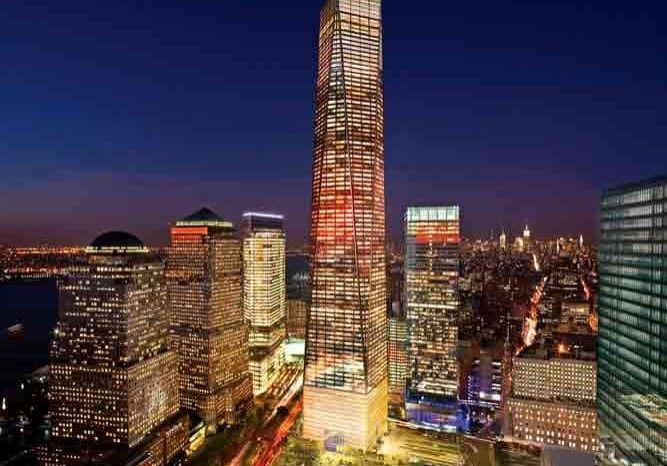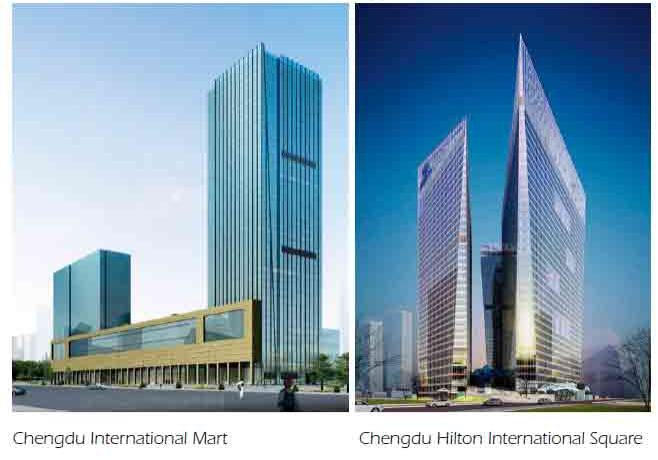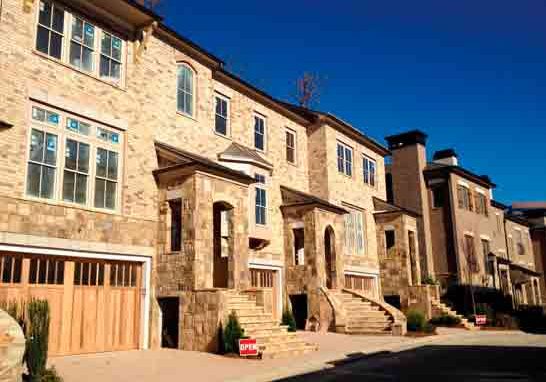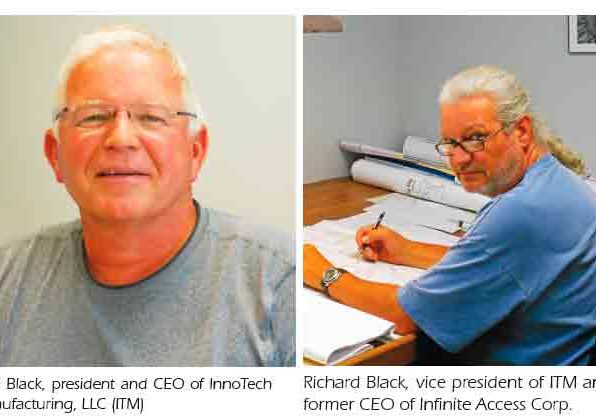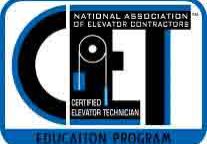Borough of Manhattan Community College Escalator Replacement
Oct 1, 2012

KONE provided escalators at this college’s Lower Manhattan campus in New York City.
Borough of Manhattan Community College (BMCC) is one of the largest City University of New York (CUNY) universities in New York City. BMCC is located in Lower Manhattan at 199 Chambers Street and serves approximately 20,000 students. The college dates back to the 1960s and is mainly made up of two “vertical campus” towers, each containing 10 Westinghouse Modular, solid-balustrade escalators. In the late 1990s, the Westinghouse equipment began showing typical signs of wear. Frequency of major unscheduled repairs and component replacements and the lack of availability of new parts were becoming a problem. The units were noisy and displayed poor ride quality. The university knew a long-term solution was needed.
After 9/11, a BMCC property known as Fitterman Hall was damaged so severely it was not salvageable. With the escalators quickly approaching the end of their useful life, the college was prompted to accelerate an escalator-replacement program. Initial plans called for the escalators to be entirely torn out, including the trusses. This option was investigated, and in order to work, several sections of the side of the building and the entire connecting infrastructure would have to be removed and replaced.
All bidding documents, engineering studies, bids to various trade contractors, etc., would have to be initiated. Roy Montgomery, senior stationary engineer for BMCC’s building and grounds, explained:
“We could not let this become a major construction project, which the escalator ‘rip out and replace’ option would have become. We were not in a position to deal with multiple trades and all the construction document delays, ongoing trade coordination, disruption and scheduling issues.”
At this juncture, KONE had just started some of the maintenance duties, and its EcoMod™ was introduced and explained to the BMCC, CUNY and the college’s Dormitory Authority State of New York (DASNY) decision makers. It was explained that with the EcoMod option, the sides of the tower structures would be left intact. No exterior-escalator wellway cladding would need to be removed and replaced, and no other contractors would have to be involved. The project was ready to start, and no additional contract documents were necessary. Once on site, KONE could work on select units in coordination with BMCC schedules. Traffic flow would be maintained, and disruption to the students and staff would be kept to a minimum.
BMCC and the campus decision makers were convinced but elected to proceed cautiously. The EcoMod option and advantages were reinforced during a factory visit in May 2003, and soon thereafter, two EcoMod escalators were purchased, installed and completed in September 2004. After full testing and acceptance from DASNY, the new EcoMod units were monitored to make sure they could perform under the challenges of a fully staffed vertical campus. According to Montgomery:
“The units were everything we were told they would be, robust and reliable. We saved scheduling time with less disruption for a total lower cost. The EcoMod solution was a win/win. We wanted to move forward with the remaining 18 units.”
These additional units were purchased in 2007. The original schedule showed KONE starting in March 2008 and completing the last unit in August 2010, with a total onsite duration of 30 months. Logistics were less than ideal: aside from the challenges of a busy vertical campus, there was limited inside storage. To overcome the storage issues, KONE placed containers on the street, adjacent to the service entrance. To counter the limited accessibility of the upper floors, KONE dismantled the upper- and lower-end modules and brought them up using service elevators. To avoid disrupting facility, staff and students, a “demo phase” was performed and accelerated on each unit on an overtime basis. KONE completed the project seven months ahead of schedule. Montgomery explained:
“The KONE workers fully understood the constraints of working in our campus facility. They kept disruption to a minimum and always displayed safe working habits and catered to the concerns of everyone in our facility. KONE gave us a great field team, lead LeVaur Livingstone, [and] project manager and field foreman, Mike Scozzari.” After the project’s initial success, KONE was awarded a contract to supply 18 additional EcoMod units and overcame the demands and constraints of working in a busy vertical campus. In the end, the overall project was completed ahead of schedule, with less disruption and at a lower total cost when compared to the traditional rip-out-and-replace scenario.
Equipment Specifications Existing System
- Number of units: 18
- Floors served: Two-seven, two towers Manufacturer/type: Westinghouse Modular, solid balustrade
- Finishes: 4-ga. stainless-steel panels, decks and enamel skirts
- Nominal speed: 90 fpm (.45 mps)
- Vertical rise: 14-18 ft.
- Nominal step width: Four units with 24 in. (600 mm) and 16 units with 40 in. (1,000 mm)
New System
- Number of units: 18
- Floors served: Two-seven, two towers Manufacturer/type: KONE Eco3000/EcoMod solid balustrade
- Finishes: 4-ga. stainless-steel panels, decks and black Teflon® skirts
- Nominal speed: 100 fpm (.50 mps)
- Vertical rise: 14-18 ft.
- Nominal step width: Four units with 24 in. (600 mm) and 16 units with 40 in. (1,000 mm) Environmentally sustainable features: Trans-Vario planetary gear drive; EcoEfficient lube-free chain
Get more of Elevator World. Sign up for our free e-newsletter.


